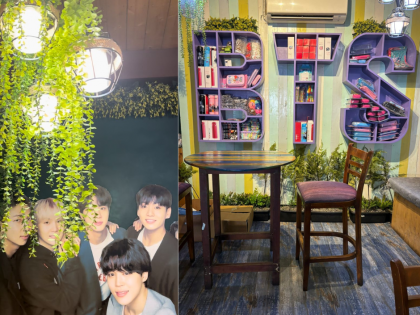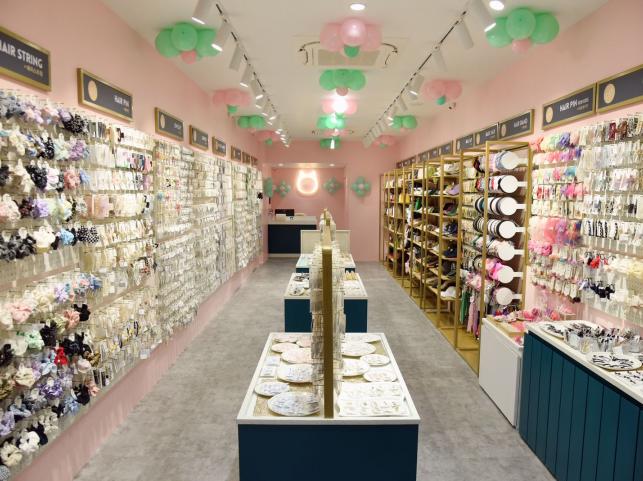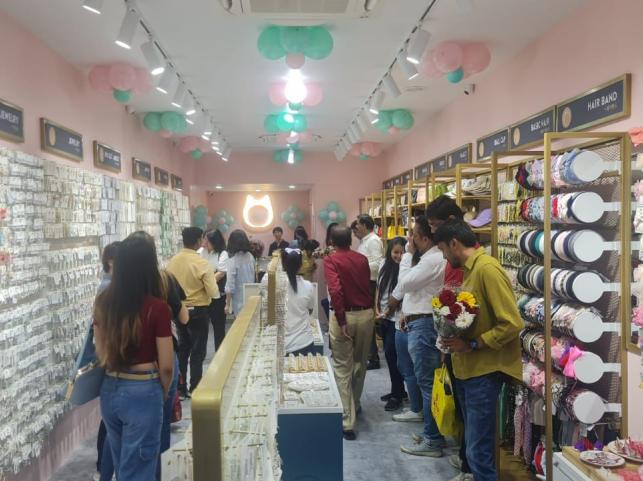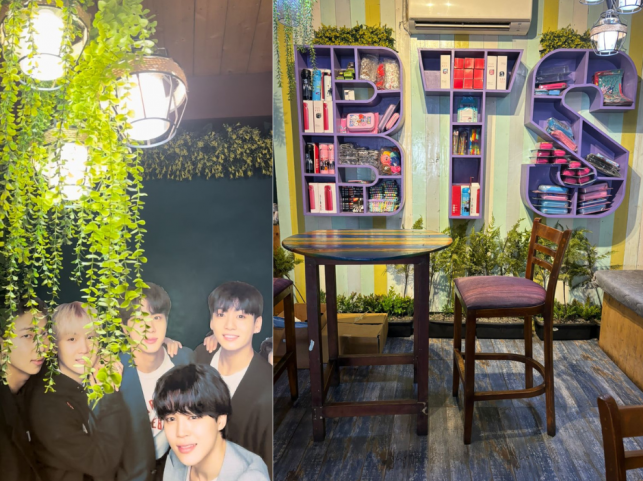Korean Wave Sweeps Mumbai: From Fashion to Food, K-Culture Gains Commercial Foothold
By Snehal Mutha | Published: March 2, 2024 08:56 PM2024-03-02T20:56:49+5:302024-03-02T20:58:54+5:30
The rising popularity of Korean culture is no longer a secret in India, but it's now going beyond mere ...

Korean Wave Sweeps Mumbai: From Fashion to Food, K-Culture Gains Commercial Foothold
The rising popularity of Korean culture is no longer a secret in India, but it's now going beyond mere fandom and entering the commercial sphere. Korean influences are becoming increasingly embedded in Mumbai's fabric, evident in restaurants, fashion, beauty, and even entertainment. This trend reflects a growing fondness for Korean culture among Indians who are incorporating it into their daily lives.
"Unknowingly, my dressing style has taken on Korean vibes," said Faizan Sayyed, a Korean culture enthusiast who works in branding and marketing in Mumbai. "I found myself naturally drawn to clothes reminiscent of Korean styling."
Sayyed's journey into K-culture began three years ago during lockdown, starting with BTS music and expanding into a deep dive into the vibrant world of K-pop culture. His enthusiasm led him to join a BTS fan group in Mumbai, where he gained a deeper understanding of the rich exchange between Indo-Korean cultures. The appeal of K-culture spans across generations, with millennials and Gen Z individuals eager to incorporate it into their lifestyles.
Indian businesses are tapping into this trend, recognizing the growing demand for Korean products.
"We've observed a strong affinity for accessories among Indian consumers, yet a potential gap in the availability of trendy, western-inspired designs," said Jennifer Makhecha, owner of N.CAT, a Korean accessory brand that opened in Mumbai on Feb. 14. "We believe N.CAT can cater to the growing demand for fashionable options in the Indian market. N.CAT's unique blend of Korean design and quality resonates with Indian consumers."
The brand has received positive responses, with an average of 50-60 customers on weekends and 25-30 on weekdays. Makhecha noted that customers are requesting more stores in major cities like Delhi, Bangalore, and Pune, indicating a growing demand for Korean-inspired products in India.
The COVID-19 lockdown played a significant role in introducing many Indians to Korean dramas, leading to a spike in the popularity of Korean food, makeup, and music. Hotels and restaurants have responded by adding Korean cuisine to their menus to cater to this demand. Authentic Korean restaurants with K-culture themes have also emerged, attracting Korean expatriates and K-culture enthusiasts.
"Our main clientele includes Koreans residing nearby and K-culture lovers," said Jibin James, manager at Sun & Moon Korean Restaurant in Lower Parel. "We prioritize authenticity in our dishes by using ingredients like Gochujang sauce imported from Korea and employing chefs trained in South Korea."
Sun & Moon Korean Restaurant is designed to resemble restaurants seen in K-dramas, offering live barbecues, private dining rooms, BTS-themed decor, and a menu featuring popular Korean dishes and drinks like Tteokbokki, Gimbap, boba tea, and soju. James added, "We have at least 300 regular Korean customers per month, mostly working professionals at companies like Shinhan Bank and Samsung."
Similar to Sun & Moon, Mumbai boasts other Korean food outlets like SeoulMate Korean Takeaway, Bang Tan Chefs Korean Restaurant, and more. The city also offers unique experiences like K-Pose Studio, a self-portrait studio with Korean pop-themed props, and independent cafes serving bubble tea such as HighCha.
The Korean Wave's influence extends beyond businesses, with celebrities like Shah Rukh Khan incorporating Korean elements into his film promotions to connect with audiences. Khan's use of "Korean hearts" as a gesture of love in his film signifies a shift in Indian consumer behavior and the market's growing responsiveness to these preferences.
"While surveying related to youth skincare preferences, it revealed a strong inclination towards Korean products, particularly facial masks and moisturizers, highlighting a notable shift in consumer preferences towards Korean offerings," added Sayyed.
The impact of the Korean Wave in India is evident, as it permeates various aspects of society and influences consumer behavior. This surge in popularity underscores a profound cultural exchange between India and Korea, while also fostering stronger trade relations between the two nations and accelerating the commercialization of Korean culture in India.


